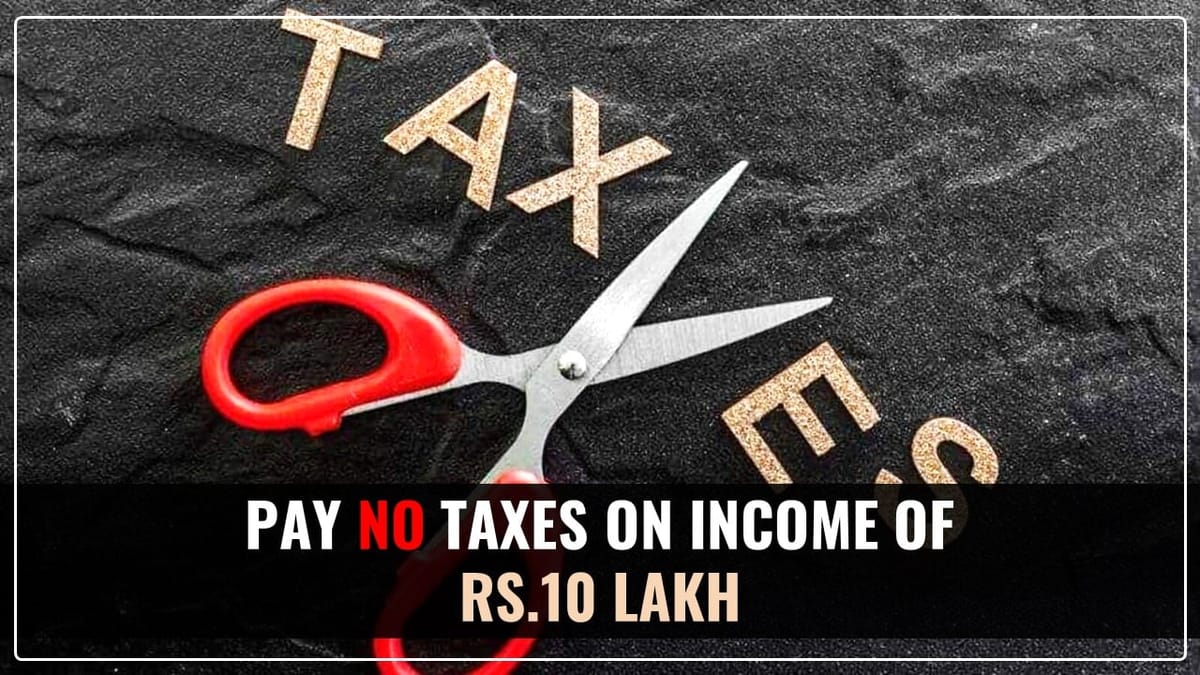The deadline for submitting ITRs is July 31st. But before filing an ITR, understand how you can save the maximum amount on income taxes.
Reetu | Jun 6, 2024 |

How No Tax on Salary Income of upto 10.50 Lakhs
The election season has ended. The picture of who will form the government is also almost finalized. The NDA has secured 292 seats, indicating that electoral trends favour them. However, in the meantime, you must complete your income tax return. The deadline for submitting ITRs is July 31st, just like last year. If you fail to file your ITR on time, you may be subject to a penalty.
However, before filing an ITR, you should understand how you can save the maximum amount on income taxes.
Income up to Rs 2 lakh 50 thousand was tax-free under the old income tax regime. However, we will explain how you can avoid paying income taxes on income of up to Rs .0 lakhs. That is, you will not be required to pay a single rupee in taxes on income up to Rs.10 lakh. Let’s know how?
1. If your annual income is Rs.10.50 lakh, how can you avoid paying income tax? We will provide you with the whole math for this. On this income, you will first receive a Rs.50 thousand standard deduction discount. This reduces your taxable income from Rs.10.50 lakh to Rs.10 lakh.
2. You can now claim up to Rs.1.50 lakh in savings from your Rs.10 lakh income under Section 80C of the Income Tax Act. Section 80C allows you to claim investments in LIC, PPF, Sukanya Samriddhi children’s tuition expenses, mutual funds (ELSS), and the EPF. This also allows you to claim the principal amount of your house loan. In this approach, your taxable income is lowered to Rs.8 lakh and 50 thousand.
3. Following this, you may claim Rs.2 lakh under Section 24B of the Income Tax Act. This exemption applies to the amount of interest paid on your home loan. After claiming these two lakh rupees, your taxable income decreases to Rs.6.50 lakh.
4. Following that, you can claim tax savings on medical health insurance up to Rs.25000 under section 80D. If your parents are senior citizens, you can claim Rs.50000 for their health insurance. In this case, if you claim a premium of Rs.75000, your taxable income is lowered to Rs.5.75 lakh.
5. You can now invest Rs.50,000 in the National Pension System (NPS) to decrease your tax liabilities. You can claim this under 80CCD (1B). That reduces your taxable income to Rs.5.25 lakh. You can reduce it even more.
6. Following that, if you donate Rs.25,000 to any organisation or trust, you will receive the advantage of Income Tax Section 80G, which will decrease your taxable income to Rs.5 lakh.
7. The tax rate is 5% on incomes ranging from Rs.2.50 lakh to Rs.5 lakh. However, the government offers a rebate on this. This reduces your tax to zero rupees.
Let us remind you that under the old tax regime, there was a 5% tax on income of Rs.2.5 lakh to Rs.5 lakh. Following that, there is a 20% tax on annual incomes ranging from Rs. 5 to Rs. 10 lakh. Aside from this, there is a 30% tax liability on annual income of Rs.10 lakh or more.
In case of any Doubt regarding Membership you can mail us at [email protected]
Join Studycafe's WhatsApp Group or Telegram Channel for Latest Updates on Government Job, Sarkari Naukri, Private Jobs, Income Tax, GST, Companies Act, Judgements and CA, CS, ICWA, and MUCH MORE!"